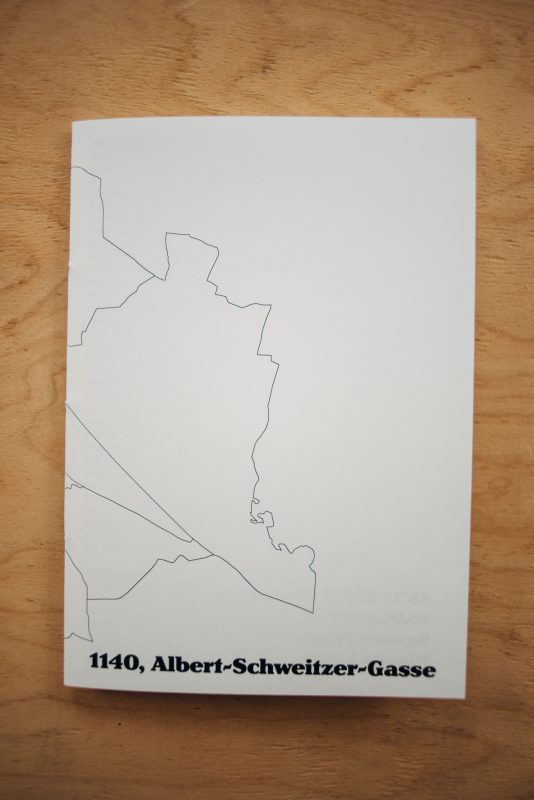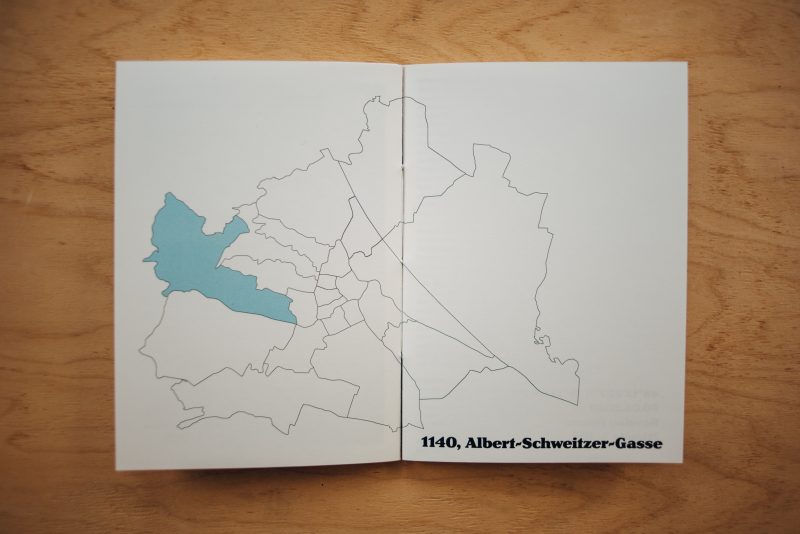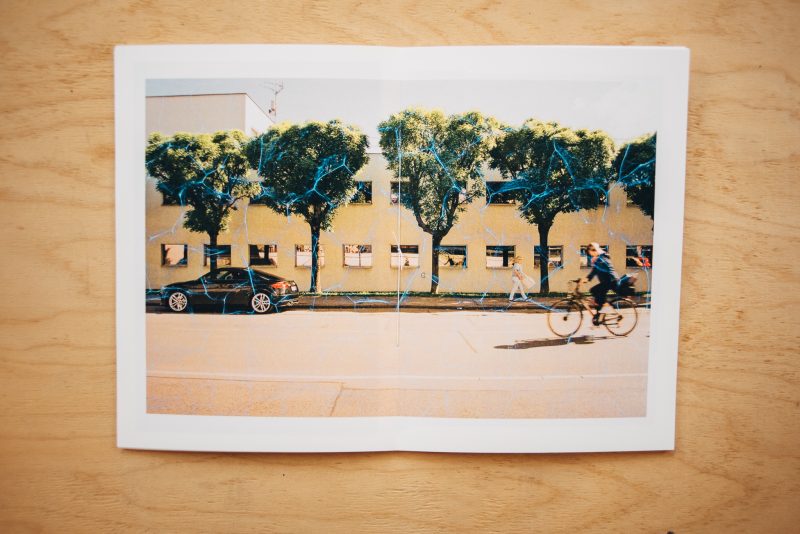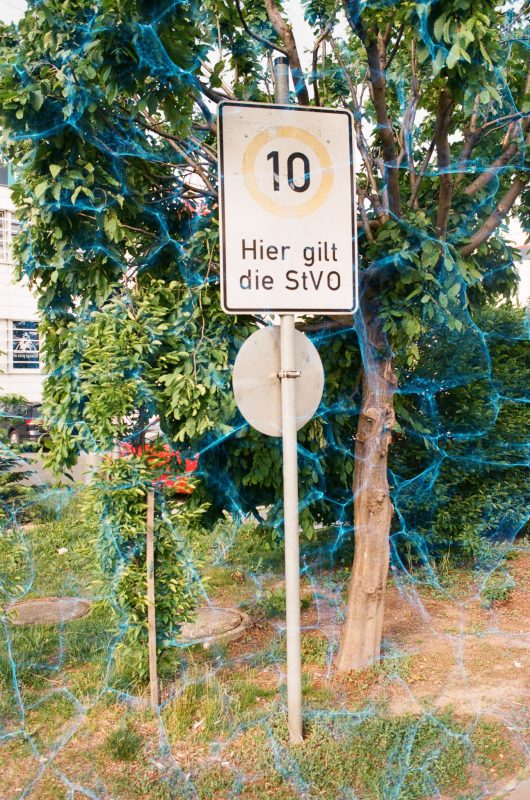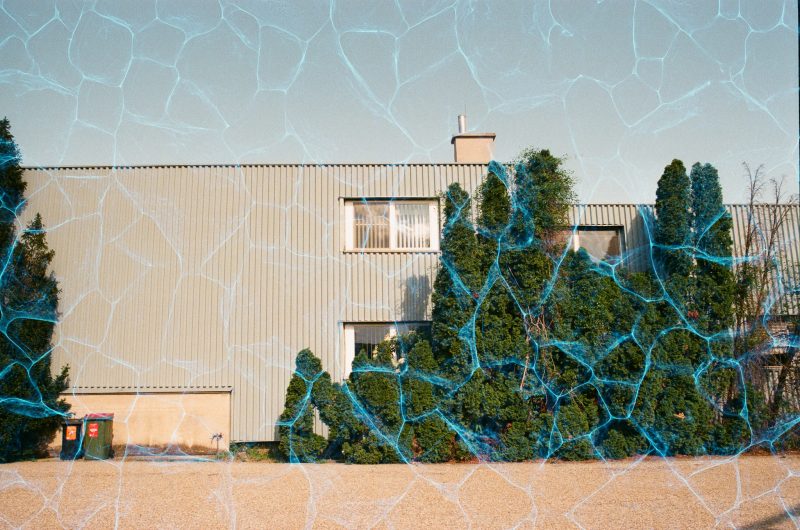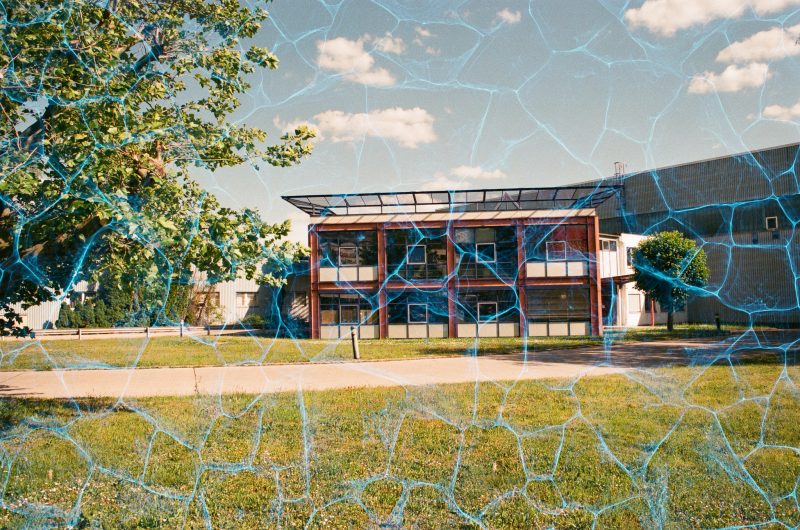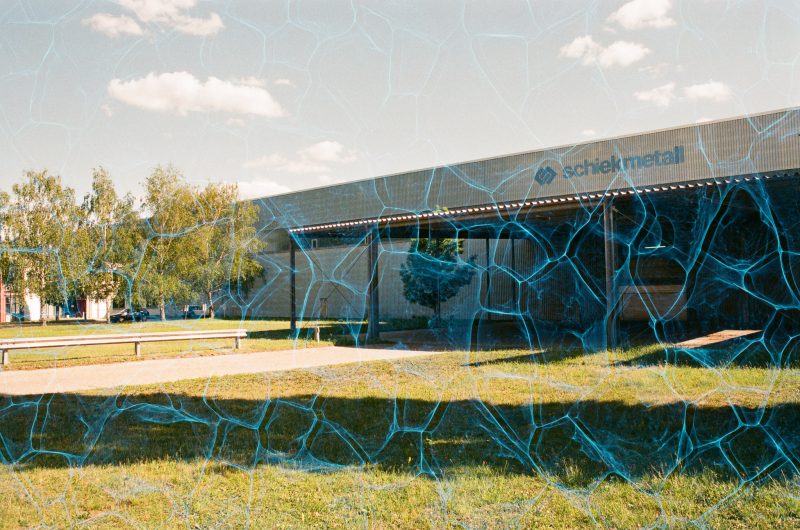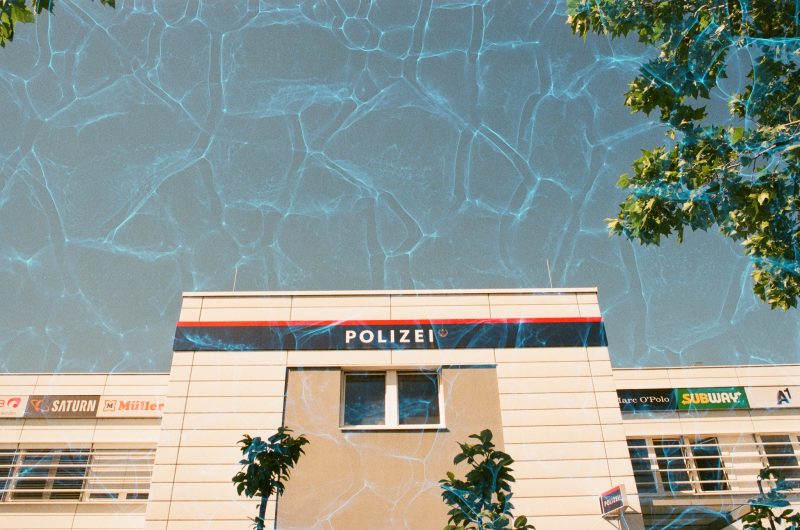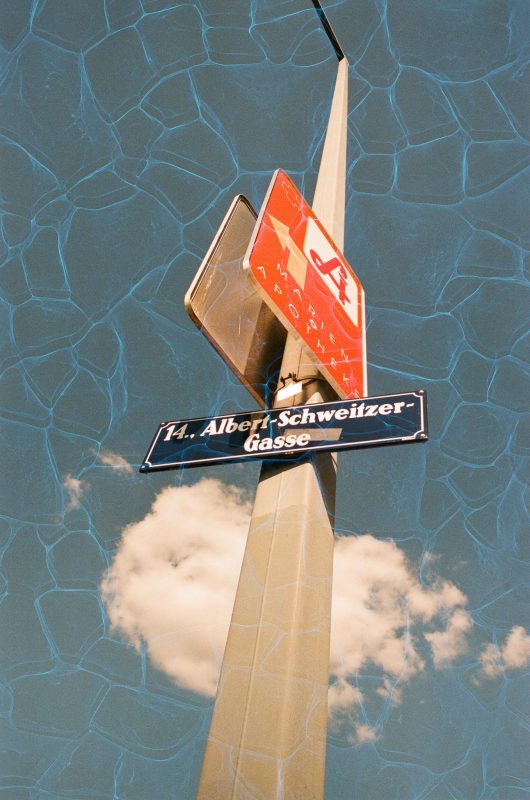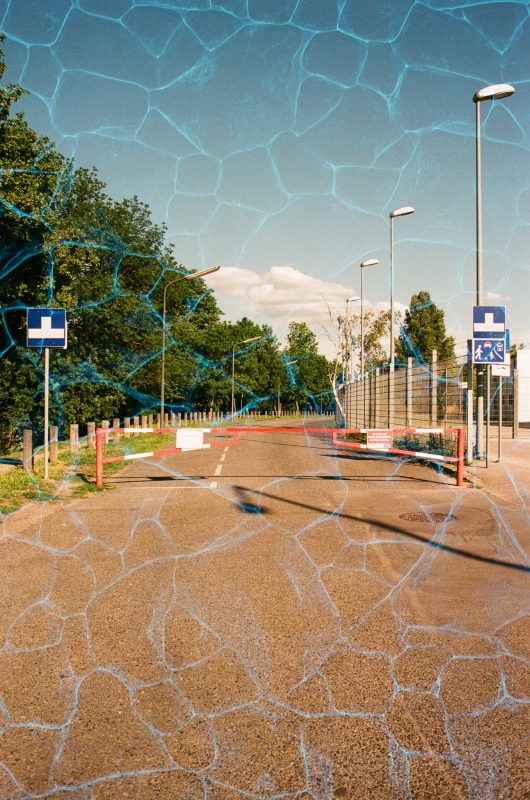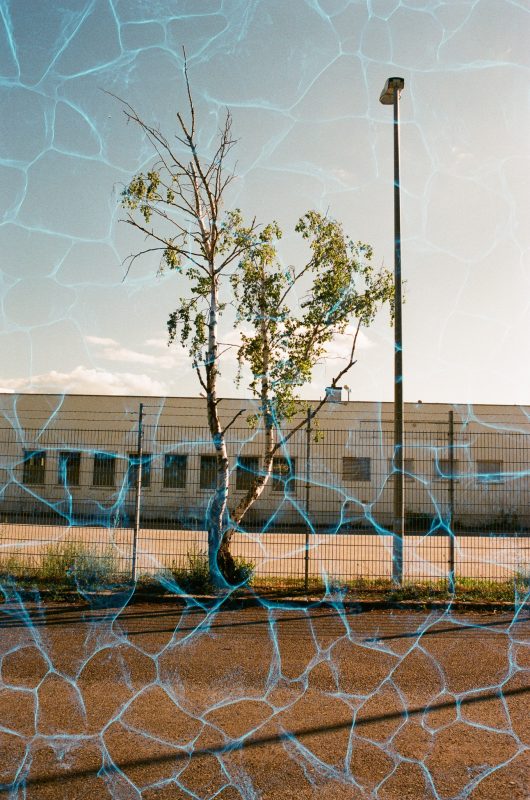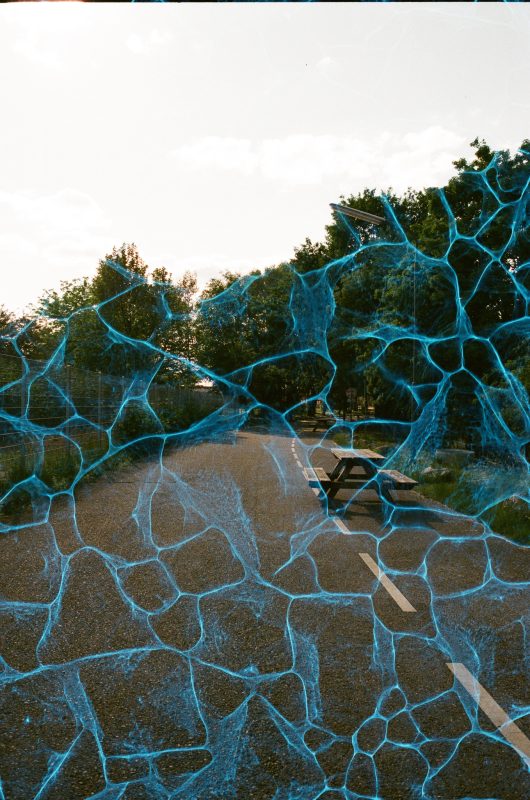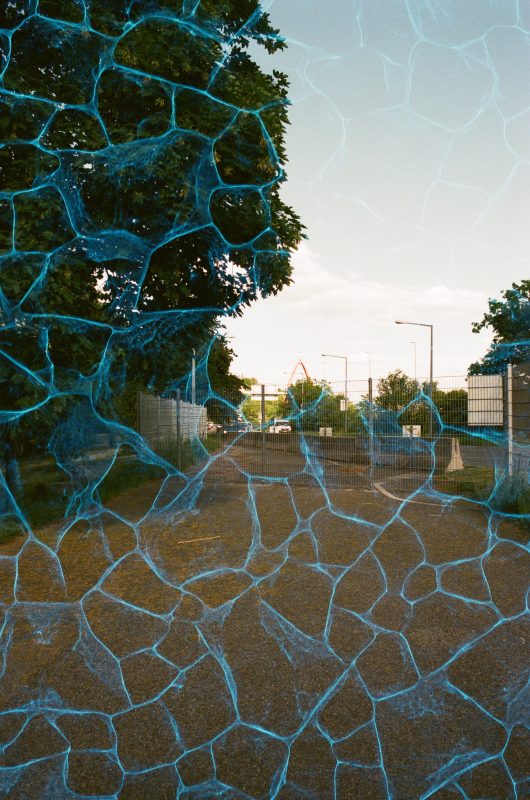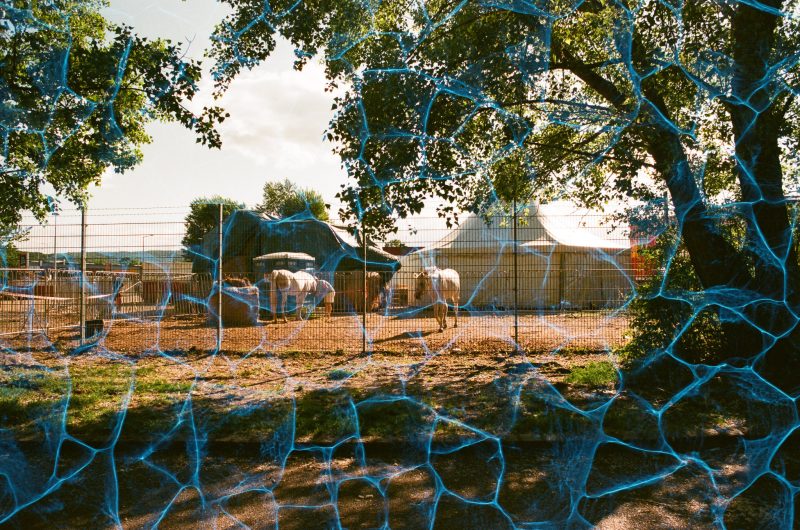Albert-Schweitzer-Gasse
1140 Penzing
€ 18,00
Pages: 32 + cover
Edition: 5 + artists copy (first edition)
Date: 2020
Film: Revolog Plexus
Camera: Minolta X300
5 in stock
Buy a print
Albert-Schweitzer-Gasse (Weidlingau) was named in 1969 after Ludwig Philipp Albert Schweitzer (born on January 14th, 1875 in Kaysersberg near Colmar, died on September 4th, 1965 in Lambaréné, Gabon).
Schweitzer studied theology and philosophy at the University of Strasbourg, and organ and piano in Paris. In 1899 he received his doctorate as Dr. phil., in 1901 the theological dissertation for Lic. theol. In 1902 he completed his habilitation in Protestant theology and became a lecturer in theology at the University of Strasbourg. In 1905 Schweitzer wrote his book on Johann Sébastien Bach in French, which was followed by a newly written German Bach monograph in 1908.
He set himself the goal of becoming a missionary doctor and studied medicine in Strasbourg from 1905 to 1913. Since he was already a lecturer at the University of Strasbourg, he needed a special permit from the government to be able to enroll. In 1912 he was licensed as a doctor. In 1913 his medical doctoral thesis followed and the “Lambaréné” jungle hospital was founded on the Ogooué River. The area was then part of French Equatorial Africa. As early as 1914, when the First World War broke out, he and his wife Helene were placed under house arrest by the French army because of their German citizenship. The Schweitzer couple were arrested in 1917, transferred from Africa to France and interned in Bordeaux, Garaison and then Saint-Rémy-de-Provence until July 1918.
Towards the end of the war they returned to Alsace in 1918, which was annexed to France on December 6th. He was able to pay his debts through lectures and organ concerts and earn money to return to Africa in 1924 to expand the jungle hospital there.
In his speech on the 100th anniversary of Johann Wolfgang von Goethe’s death in 1932 in Frankfurt am Main, Schweitzer warned of the dangers of the emerging National Socialism. In January 1939 Schweitzer returned briefly to Europe, but because of the threat of war he soon returned to Africa. His wife had to flee all over France because of her Jewish descent, but in 1941 she managed to travel to Africa under the most difficult of circumstances.
In 1952 Schweitzer was awarded the Nobel Peace Prize. In his acceptance speech given in 1954, he spoke out clearly against war.
In part, Schweitzer were accused of racist, paternalistic and pro-colonialist attitudes. He criticized Gabon’s independence because the country was not yet ready for it. Chinua Achebe reported that Schweitzer had said that Africans were his brothers, but his “younger brothers”. The American journalist John Gunther visited Lambaréné in the 1950s and criticized Schweitzer’s paternalistic attitude towards Africans. They would also not be employed there as specialists. After decades that Schweitzer had already worked in Africa, the nurses still came from Europe.

